Biotin, also known as Vitamin B7, is one of the B vitamins that play an essential role in keeping your body running smoothly.
While most people – especially EverBella readers – are familiar with its beauty benefits, many might not know that it also helps turn food into energy, supports your metabolism, and even promotes the health of your nervous system.
But here’s something even more interesting: Did you know that your gut microbiome – the community of bacteria, fungi, and other microorganisms living in your digestive tract – can have a big impact on how well your body absorbs biotin?
In this blog, I’ll explore the relationship between biotin absorption and gut health, how low biotin levels can hurt your gut, and how restoring optimal biotin levels can, in turn, improve your microbiome.
We’ll also go over how to ensure you’re getting enough biotin in your diet and how to maximize its absorption to enjoy all the benefits this vital nutrient offers!
Before all that, let’s just do a quick recap on biotin – an often-forgotten vitamin (which is why so many may find themselves low in it).
Biotin is a water-soluble vitamin, meaning your body doesn’t store it for long, so you need a steady supply from food or supplements. It’s involved in several crucial processes in the body:
Though biotin is abundant in many foods, its absorption isn’t always guaranteed. The state of your gut health can have a major impact on how effectively your body absorbs this essential vitamin.
A healthy gut microbiome is crucial for many aspects of digestion, including nutrient absorption. When your gut microbiome is balanced, it helps break down food more efficiently, creating a conducive environment for your body to absorb the nutrients it needs, like biotin.
Interestingly, biotin absorption and gut health are closely linked in a two-way relationship. Here’s how:
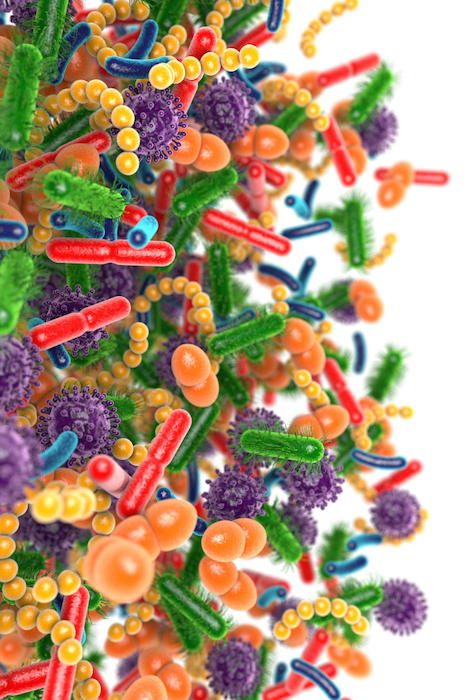
Your gut isn’t just home to a variety of microbes; some of these microorganisms are capable of producing biotin themselves!
Studies have shown that certain beneficial gut bacteria – like Lactobacillus, Bifidobacterium, and Enterococcus – can produce biotin as they break down food. So, when your gut microbiome is in a healthy state, it may actually help produce biotin in addition to absorbing it.
However, an imbalance in the gut microbiome, known as dysbiosis, can disrupt the production of biotin. When harmful bacteria or yeast overgrow in the gut, the beneficial bacteria that produce biotin may be reduced, leading to a deficiency in this essential vitamin.
In addition to biotin production, a healthy gut lining (or intestinal mucosa) is essential for proper nutrient absorption.
The cells lining the small intestine have tiny hair-like structures called villi, which help absorb nutrients. When the gut microbiome is out of balance, or if inflammation or other gut issues are present, the gut lining may become damaged, leading to impaired absorption of biotin and other essential nutrients.
A well-balanced gut microbiome supports optimal nutrient absorption, including biotin. When your gut is healthy, the right combination of beneficial bacteria can improve the efficiency with which biotin is absorbed into the bloodstream – meaning you’re taking in more of what you’re consuming.
This can ultimately boost your biotin levels, leading to improved energy levels, healthier skin, hair, and nails, and better overall metabolic function.
While improving gut health can boost biotin absorption, the reverse is also true – low biotin levels can negatively impact gut health. Here are a few ways biotin deficiency can affect your digestive system:
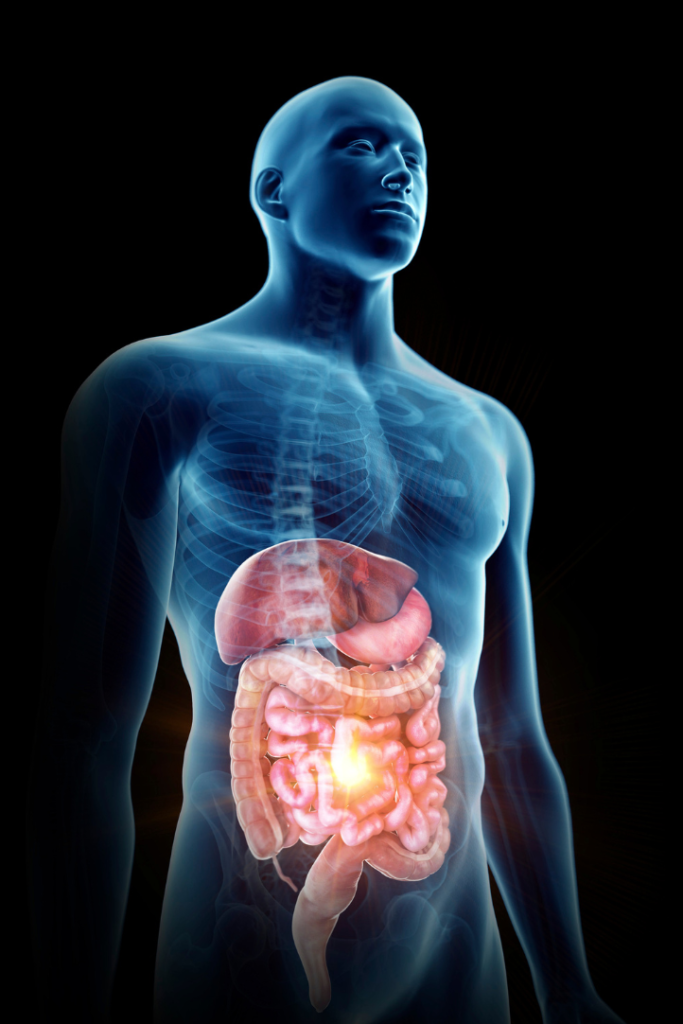
Biotin has anti-inflammatory properties that help protect the gut lining from damage. When biotin levels are low, inflammation in the gut can increase, leading to gut discomfort, bloating, or even conditions like irritable bowel syndrome (IBS). Over time, chronic inflammation can lead to more serious gut issues.
As mentioned earlier, a healthy balance of gut bacteria is essential for overall gut function. Biotin plays a role in supporting the growth of beneficial bacteria. A deficiency in biotin may disrupt this balance, leading to an overgrowth of harmful bacteria or yeast, which can further damage gut health.
Biotin supports enzymes that help digest proteins, fats, and carbohydrates. Low biotin levels can impair the digestive process, making it more difficult for your body to break down and absorb nutrients properly. This can result in poor digestion, bloating, and nutrient deficiencies.
The gut is home to a significant portion of your immune system. When biotin levels are low, it can compromise your immune system’s ability to protect you from harmful pathogens that may enter through the digestive tract. This can make you more susceptible to infections and other health issues.
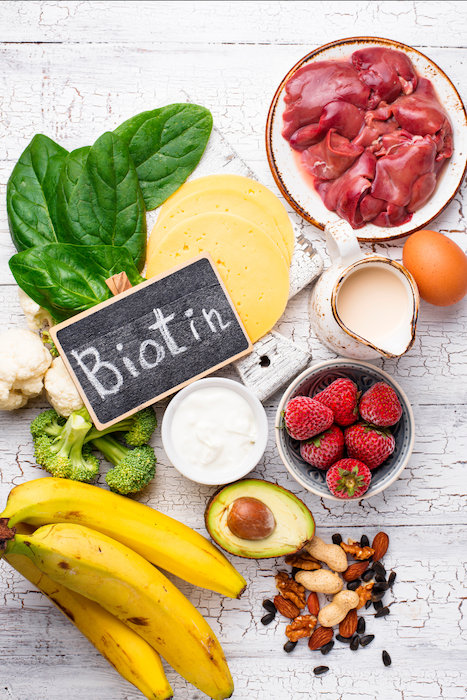
The good news is that restoring optimal biotin levels can help improve gut health, too. Here’s how:
By increasing biotin levels, you can support the growth of beneficial bacteria that naturally occur in the gut. This can help restore balance to the microbiome, improve digestion, and promote overall gut health. A balanced microbiome is crucial for not only absorbing biotin but also other essential nutrients.
Biotin’s anti-inflammatory effects can help calm an inflamed gut. By reducing gut inflammation, biotin can promote the healing of the intestinal lining, improving nutrient absorption and digestion.
Biotin plays a role in helping digestive enzymes function effectively. By restoring biotin levels, you may notice improved digestion, leading to better nutrient absorption, including biotin itself.
Biotin supports a healthy immune system, which is crucial for protecting the gut. A strong immune system can help prevent infections that could harm the gut, as well as manage gut inflammation and promote healing.
Ensuring that your body has enough biotin is key to supporting your gut and overall health. Here are a few ways to maintain optimal biotin levels:
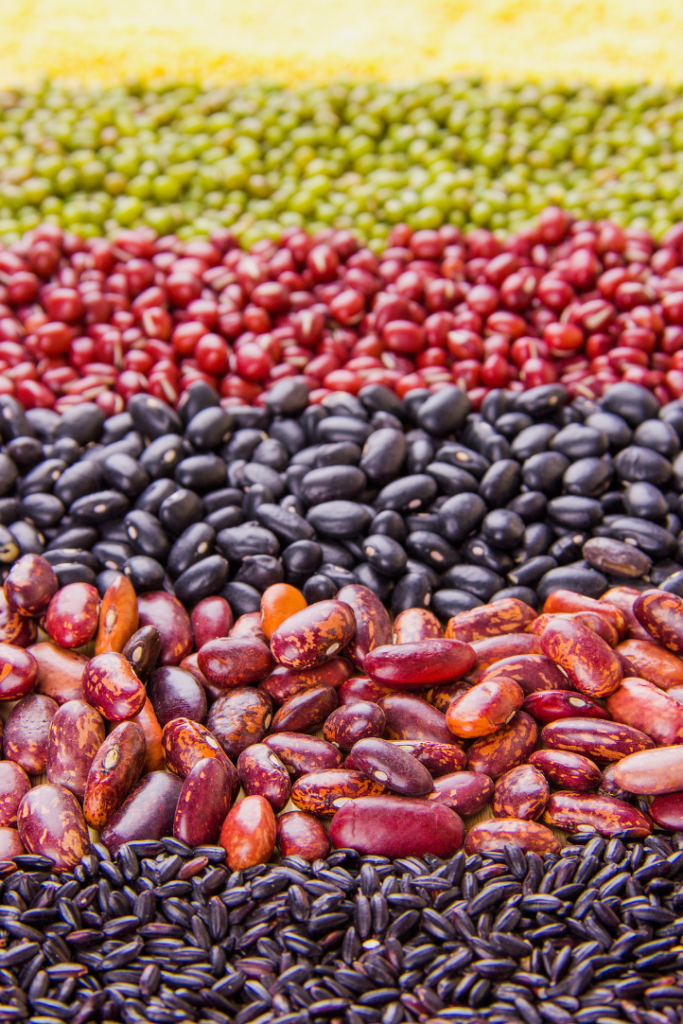
A balanced diet that includes plenty of biotin-rich foods is the best way to ensure you get enough of this important vitamin. Some of the best sources of biotin include:
If you suspect you’re not getting enough biotin from food alone, a supplement can help boost your intake.
This may be the best option for many because it can be difficult to know the status of your microbiome and whether or not your body is properly taking in biotin.
Also, supplementing is the only way to know for SURE that you’re getting enough biotin every day.
To improve biotin absorption, it’s essential to keep your gut healthy. Here are a few tips to support your gut microbiome:
Excessive alcohol consumption and processed foods can negatively impact the gut microbiome. Alcohol can disrupt the balance of gut bacteria, and processed foods can cause inflammation in the gut. Limiting these can help support gut health and, in turn, improve biotin absorption.
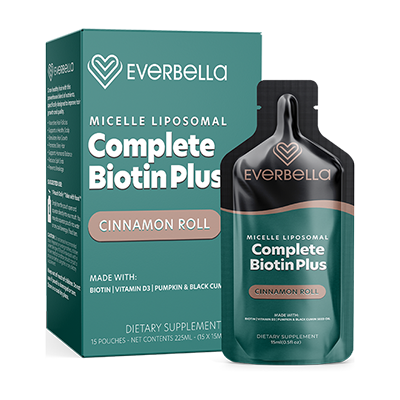
Biotin is more than just a vitamin for healthy hair and skin – it plays a vital role in energy production, metabolism, and overall health.
Your gut health is intimately connected with your ability to absorb and use biotin effectively. By ensuring a healthy gut microbiome, you can boost biotin absorption and support many other aspects of your well-being.
The good news is that improving gut health is achievable with a balanced diet, regular hydration, and maintaining healthy lifestyle habits. And if you’re struggling with biotin deficiency, restoring your levels can improve both your gut health and overall vitality.